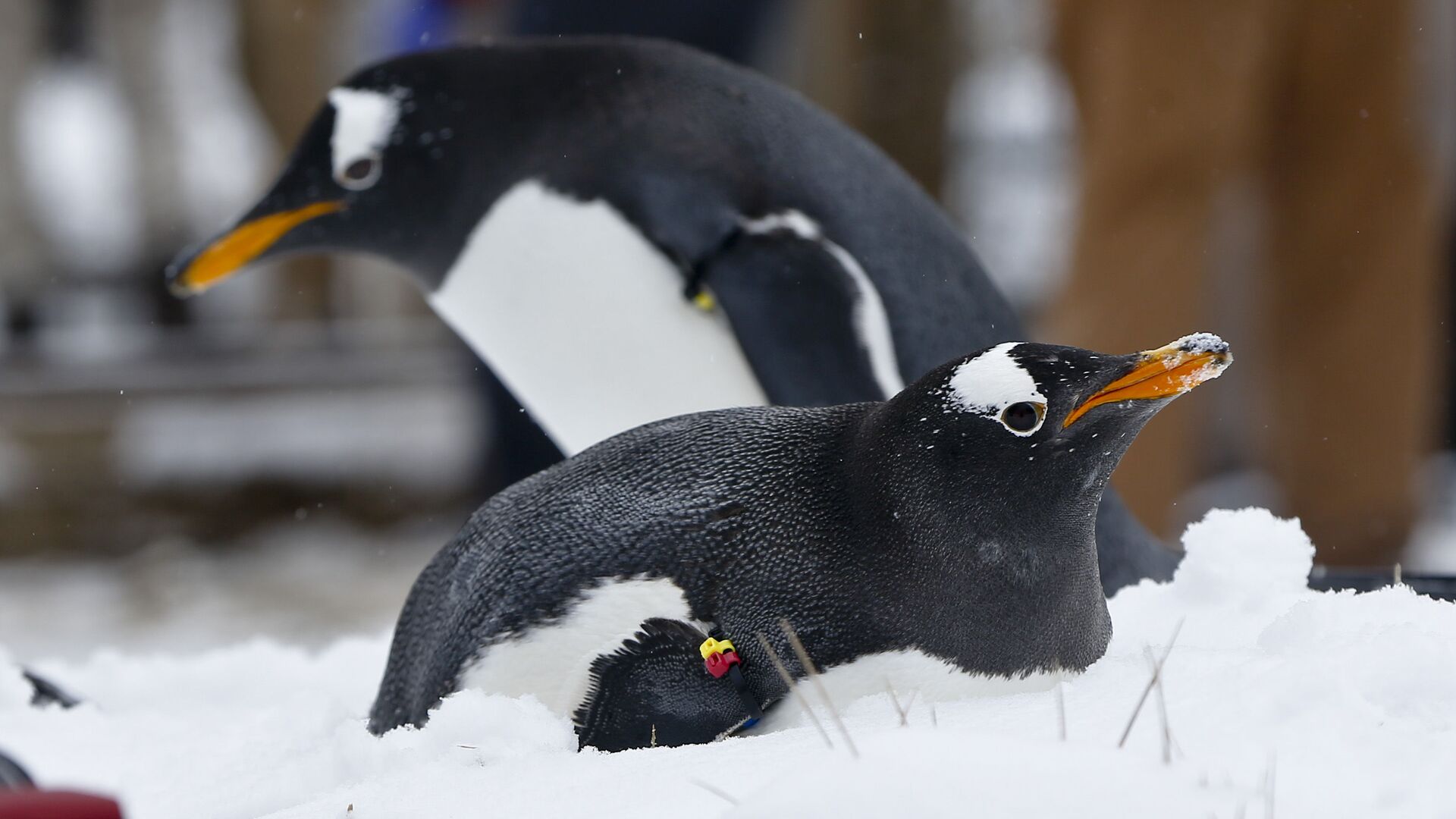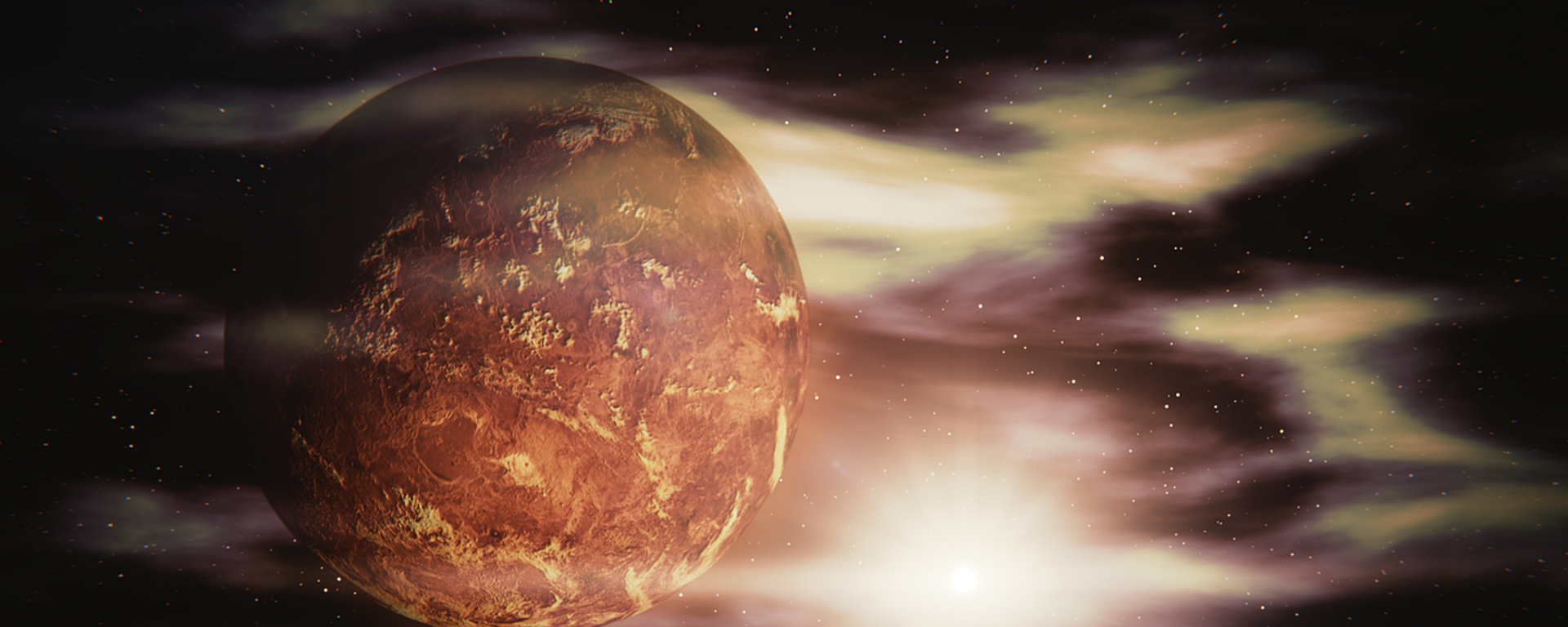https://sputnikglobe.com/20210914/toxic-compound-spotted-on-venus-gets-discovered-in-penguin-poo-media-says-1089075541.html
Toxic Compound Spotted on Venus Found in Penguin Dung, Media Says
Toxic Compound Spotted on Venus Found in Penguin Dung, Media Says
Sputnik International
Dr. Dave Clements, of Imperial College, London reportedly said that scientists are convinced "the phosphine finding is real", but "don’t know what’s making... 14.09.2021, Sputnik International
2021-09-14T18:09+0000
2021-09-14T18:09+0000
2021-09-14T18:26+0000
science & tech
venus
atmosphere
chemical
penguins
https://cdn1.img.sputnikglobe.com/img/07e4/0b/04/1080982381_0:155:2976:1829_1920x0_80_0_0_773bbd7edca8cbe976228cabe52f1746.jpg
Gentoo penguins have recently become the focus of scientific scrutiny after traces of phosphine – a chemical substance that was apparently detected in the atmosphere of Venus last year – were discovered in penguin droppings, the Daily Star reports.According to the newspaper, scientists now seek to study the lifestyle of the gentoo penguins in a bid to figure out how this compound gets produced by these birds.He also added that "it may be to do with defence or signalling against competing bacteria."The newspaper also suggests that "UK scientists believe alien life forms may have already been detected, and studying penguins could help them identify the types of organisms that exist in other worlds."Phosphine is a toxic gas compound that can be produced by anaerobic organisms. It has been proposed as a signature of life on other planets.
https://sputnikglobe.com/20210414/more-potential-signs-of-life-in-venus-atmosphere-uncovered-by-scientists-1082629694.html
Sputnik International
feedback@sputniknews.com
+74956456601
MIA „Rosiya Segodnya“
2021
News
en_EN
Sputnik International
feedback@sputniknews.com
+74956456601
MIA „Rosiya Segodnya“
Sputnik International
feedback@sputniknews.com
+74956456601
MIA „Rosiya Segodnya“
science & tech, venus, atmosphere, chemical, penguins
science & tech, venus, atmosphere, chemical, penguins
Toxic Compound Spotted on Venus Found in Penguin Dung, Media Says
18:09 GMT 14.09.2021 (Updated: 18:26 GMT 14.09.2021) Dr. Dave Clements, of Imperial College, London reportedly said that scientists are convinced "the phosphine finding is real", but "don’t know what’s making it."
Gentoo penguins have recently become the focus of scientific scrutiny after traces of phosphine – a chemical substance that was apparently
detected in the atmosphere of Venus last year – were discovered in penguin droppings, the Daily Star reports.
According to the newspaper, scientists now seek to study the lifestyle of the gentoo penguins in a bid to figure out how this compound gets produced by these birds.
"We’re convinced the phosphine finding is real. But we don’t know what’s making it," said Dr Dave Clements, of Imperial College, London. "There are some anaerobic bacteria that produce phosphine. It’s found in pond slime and the guts of badgers and penguin guano."
He also added that "it may be to do with defence or signalling against competing bacteria."
The newspaper also suggests that "UK scientists believe alien life forms may have already been detected, and studying penguins could help them identify the types of organisms that exist in other worlds."
Phosphine is a toxic gas compound that can be produced by anaerobic organisms. It has been proposed as a signature of life on other planets.




